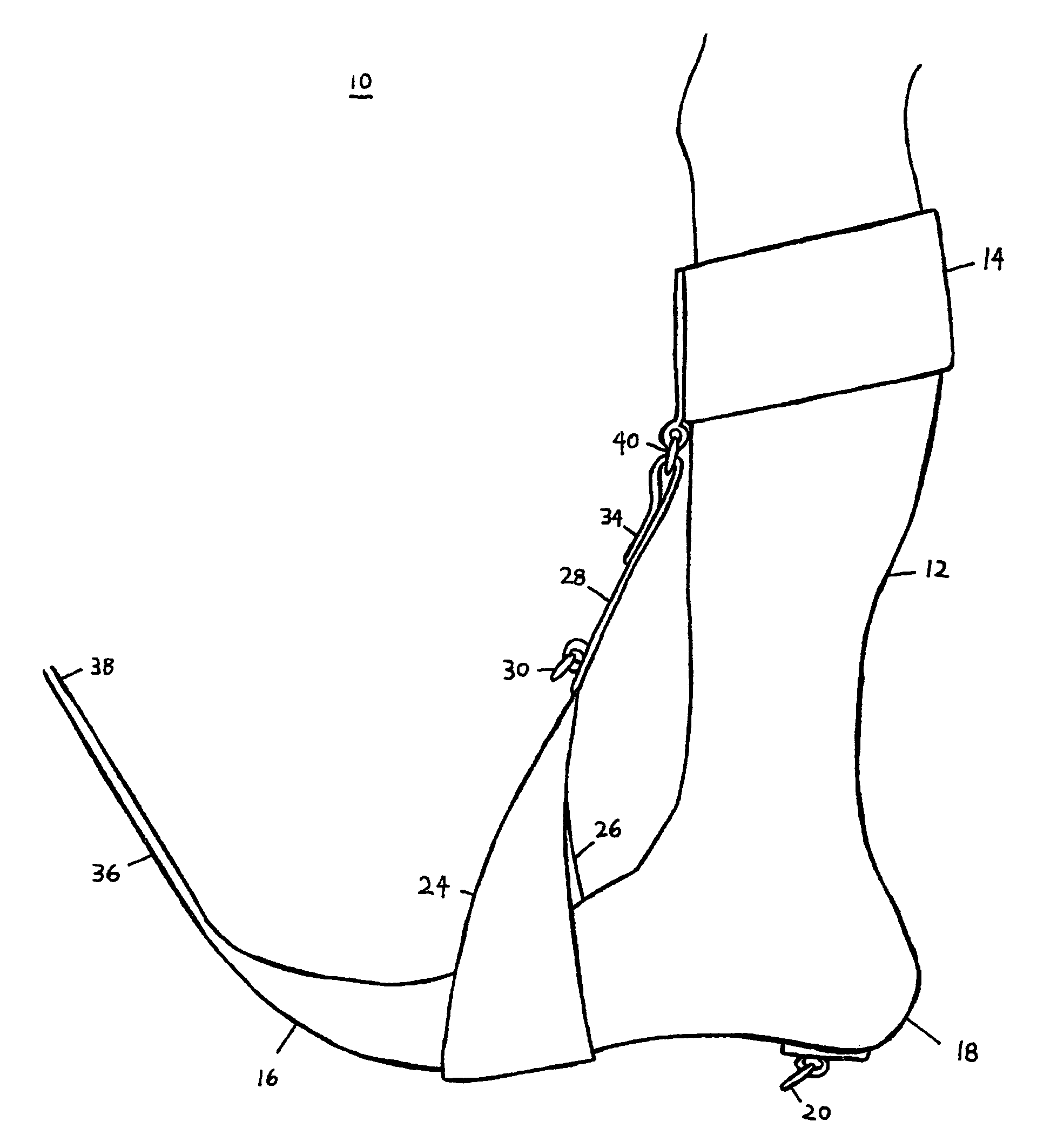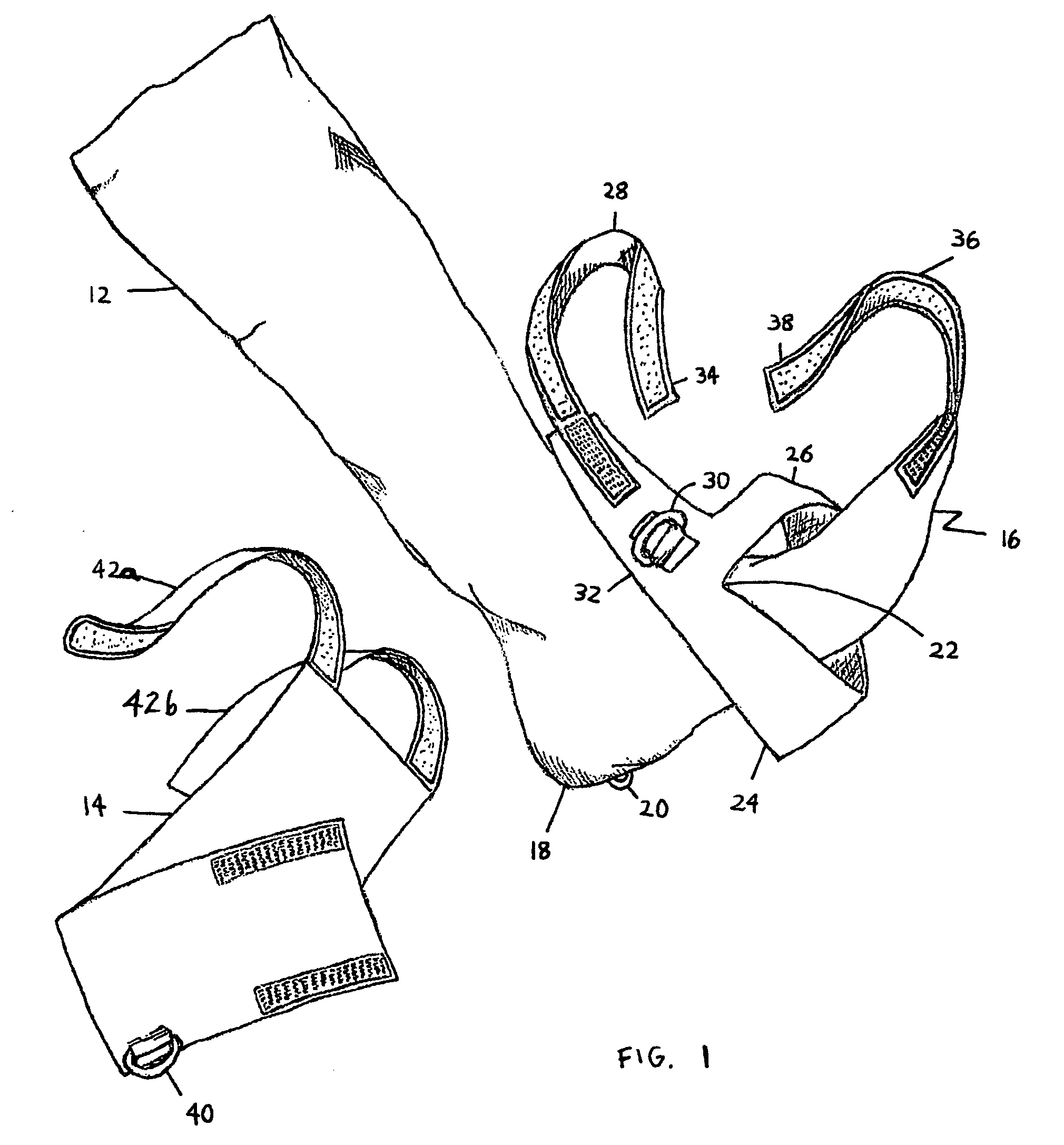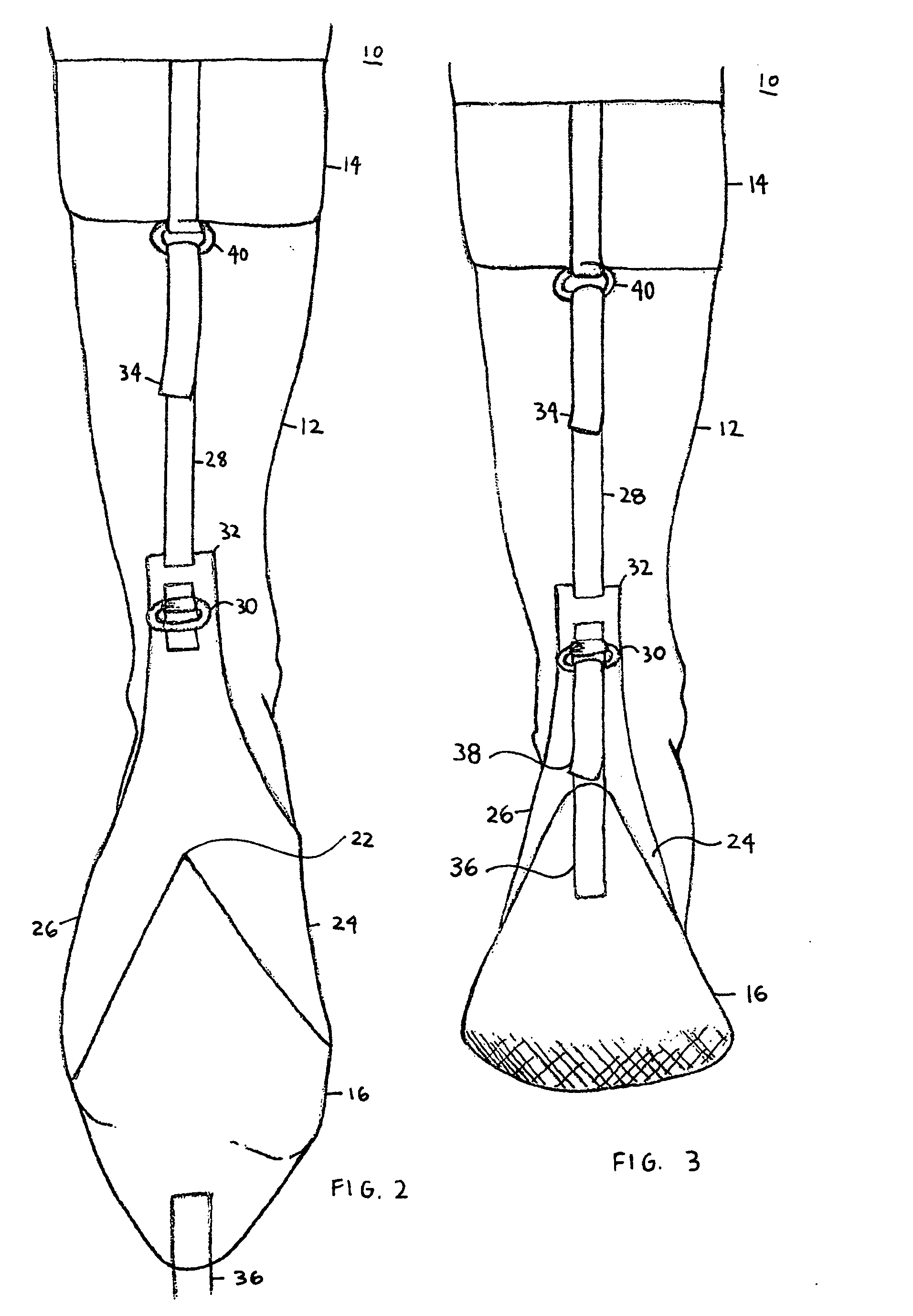Plantar flexion prevention device
- Summary
- Abstract
- Description
- Claims
- Application Information
AI Technical Summary
Benefits of technology
Problems solved by technology
Method used
Image
Examples
Embodiment Construction
[0035]The present invention as shown in FIGS. 1 and 2 is a plantar flexion prevention device that is generally indicated with the numeral 10. The plantar flexion prevention device 10 includes two components, an elastic sock 12 and a cuff 14.
[0036]The elastic sock 12 has a toe portion 16 and a heel portion 18. The elastic sock 12 extends over a foot to about the calf area above the foot. The heel portion 18 has a first attachment mechanism 20 positioned on the plantar surface of the heel of the foot. The first attachment mechanism 20 can be either a hook or ring or other commonly known securing member.
[0037]The elastic sock 12 has a generally inverted Y-shaped inelastic strap 22. The Y-shaped inelastic strap 22, in the preferred embodiment, is a part of the sock 12, such as being securely attached to the sock 12. The inverted Y-shaped strap 22 includes two members or branches 24, 26 that are securely attached to the elastic sock 12 or wrap around to connect to each other as one piece...
PUM
 Login to View More
Login to View More Abstract
Description
Claims
Application Information
 Login to View More
Login to View More - R&D
- Intellectual Property
- Life Sciences
- Materials
- Tech Scout
- Unparalleled Data Quality
- Higher Quality Content
- 60% Fewer Hallucinations
Browse by: Latest US Patents, China's latest patents, Technical Efficacy Thesaurus, Application Domain, Technology Topic, Popular Technical Reports.
© 2025 PatSnap. All rights reserved.Legal|Privacy policy|Modern Slavery Act Transparency Statement|Sitemap|About US| Contact US: help@patsnap.com



